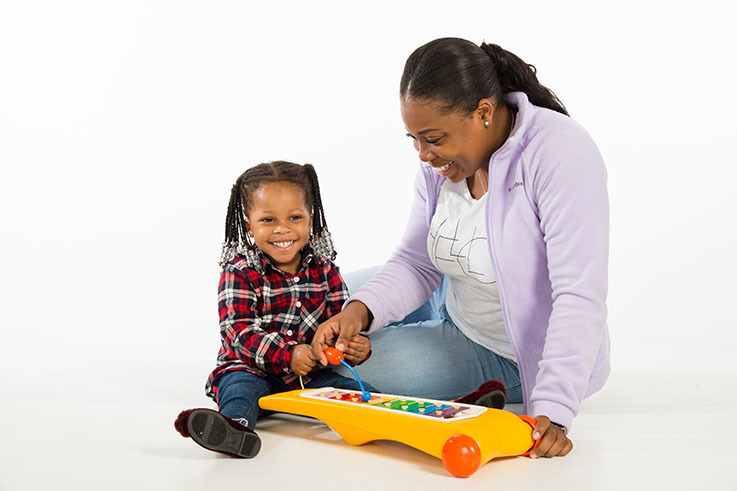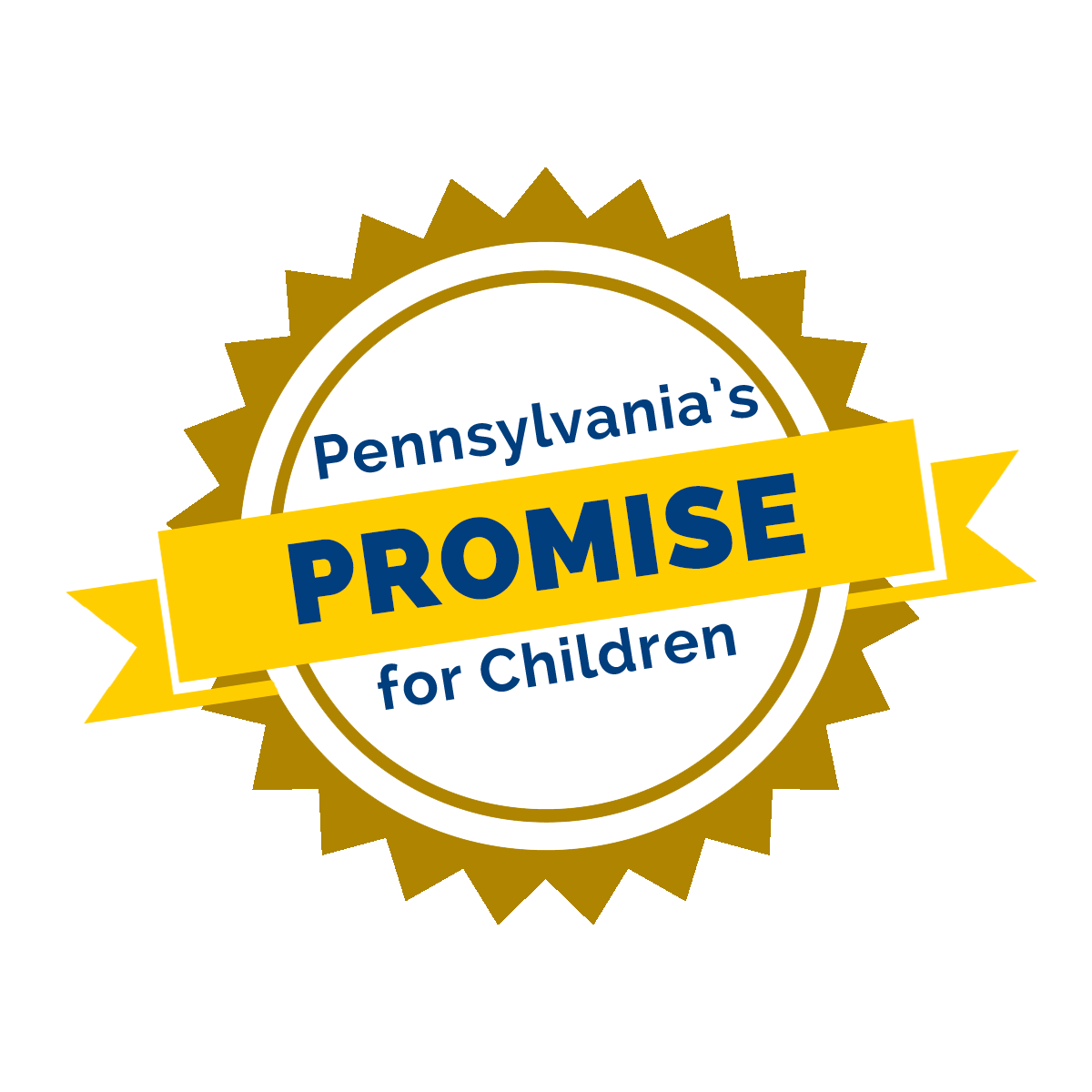
PA Car Seat Law to Keep Children Safe
PA’s Promise for Children
Pennsylvania Law requires a child younger than two years of age to be secured in a rear-facing car seat. Find what the law means for your child and how you can get a free car seat check to ensure you child is safe while in a vehicle.
Which Vaccinations Should Your Child Have and When?
Pennsylvania Department of Health
Your child will need their first immunization at birth and then several more later. This list shows when each shot is due.
Grief and Loss
Early Childhood Mental Health Consultation
It can be challenging to identify that a young child is experiencing and attempting to deal with loss or grief. Find out symptoms and get resources to help your child deal with grief and loss.
Explore the Food Groups
United States Department of Agriculture (USDA)
A resource that offers fact sheets about the five food groups, tips on eating healthy and tools to build good habits.
MyPlate Food Quizzes
U.S. Department of Agriculture
Eating healthy foods is part of helping your child grow. How knowledgeable are you about fruits, vegetables, grains, protein foods, and dairy? The U.S. Department of Agriculture has five short online quizzes to test how much you know.
Reduce the Risk of Choking in Young Children at Mealtimes
- Preparing foods to make them easier to chew
- Choking hazards to avoid
- Ways to model and teach good eating habits and more
Available in English and Spanish.
Reduce the Risk of Poisoning
American Association of Poison Control Centers
This site offers prevention strategies from poison-proofing the home to protecting against food-borne illness.
Sesame Street in Communities
Sesame Street in Communities
A special initiative, called Sesame Street in Communities, offers free materials, including videos, books and games to help families and caregivers help young children cope with traumatic experiences.
3 Reasons Good Infant Mental Health Matters
Pennsylvania Alliance for the Advancement of Infant Mental Health
Infant Mental Health is the optimal social, emotional, and cognitive well-being of children ages 0 to 3, developed by secure and stable relationships with nurturing caregivers. The infographic, 3 Reasons Good Infant Mental Health Matters, from the PA Alliance for the Advancement of Infant Mental Health provides information on how brain architecture, body & health, and behaviors & relationships can impact the mental health of infants.
Bedroom Safety for Children of All Ages
PA’s Promise for Children
A child’s bedroom can be a multi-purpose room, used for sleeping, quiet time, or play. The bedroom should also be a safe place for your child. Take time to ensure your child’s safety won’t stop at the bedroom door with these tips.
Recommendations for Safe Infant Sleep Practices
American Academy of Pediatrics
A policy statement from the American Academy of Pediatrics (AAP) provides updated recommendations for a safe infant sleep environment.
Keeping Your Child’s Food Safe to Eat
PA’s Promise for Children
You take the time to pack your child healthy lunch or snack for Kindergarten or early childhood education program, so keep it safe to eat. Use these tips to make sure you child stays healthy and engaged by protecting them from food-borne illness.
Start a Smile Early!
PA’s Promise for Children
It’s never too early to be thinking of your child’s smile—even if teeth have not yet appeared. Taking care of your child’s smile begins at birth.
Coats and Car Seats
PA’s Promise for Children
Winter means keeping kids warm, but did you know that babies and young children in car seats should NOT wear puffy coats or snowsuits when in their car seat? Find out how to keep your child safe during the winter months.
Is Your Family Ready for An Emergency?
PA’s Promise for Children
September is National Emergency Preparedness Month, but you can help your family prepare for an emergency like floods, fires, winter storms and more during any month.
Sleep Now to Stay Healthy Later
PA’s Promise for Children
Infants who sleep less may have lower cognitive and language skills by age two. However, addressing risk factors early can help avoid more serious problems later. Get tips on helping your child get the sleep they need to say healthy.
Buckle Up Safely
PA’s Promise for Children
Using the correct car seat or booster can be a lifesaver: make sure your child is always buckled in an age- and size-appropriate car seat or booster seat. Find out which car seat your child should use.
National Children's Mental Health Awareness Day
American Psychological Association
National Children’s Mental Health Awareness Day is a day for everyone to learn about and promote positive youth development, resilience, recovery, and the transformation of mental health services delivery for children and youth their families.
Our Kids....To Infinity & Beyond! Group
The Our Kids….To Infinity & Beyond! private group on Facebook is for family members who have, and professionals who work with children who are Deaf or Hard of Hearing. The focus is on advocacy, self-advocacy, self-determination. This is a safe place to ask questions, get advice, or share stories.
Winter Safety Tips for Kids
American Academy of Pediatrics
Whether winter brings severe storms, light dustings or just cold temperatures, the American Academy of Pediatrics (AAP) has valuable tips on how to keep your children safe and warm.
Keeping Your Child Safe from Lead
Center for Disease Control and Prevention (CDC)
Lead can affect every organ of the body. Because young children are growing and developing so quickly, they are more susceptible to lead’s toxic effects. Find out what you can do to keep your child safe from the exposure to and effects of lead.
Brush, Book, Bed
American Academy of Pediatrics (AAP)
The Brush, Book, Bed message and program are intended for children from birth to 6 years old. The program aims to improve oral health services in the medical home by linking oral health information with messages about early literacy, sleep, and establishing a regular nighttime routine.
Materials are available in English, Spanish, Cambodian, French, Korean, Russian, and Taiwanese.
